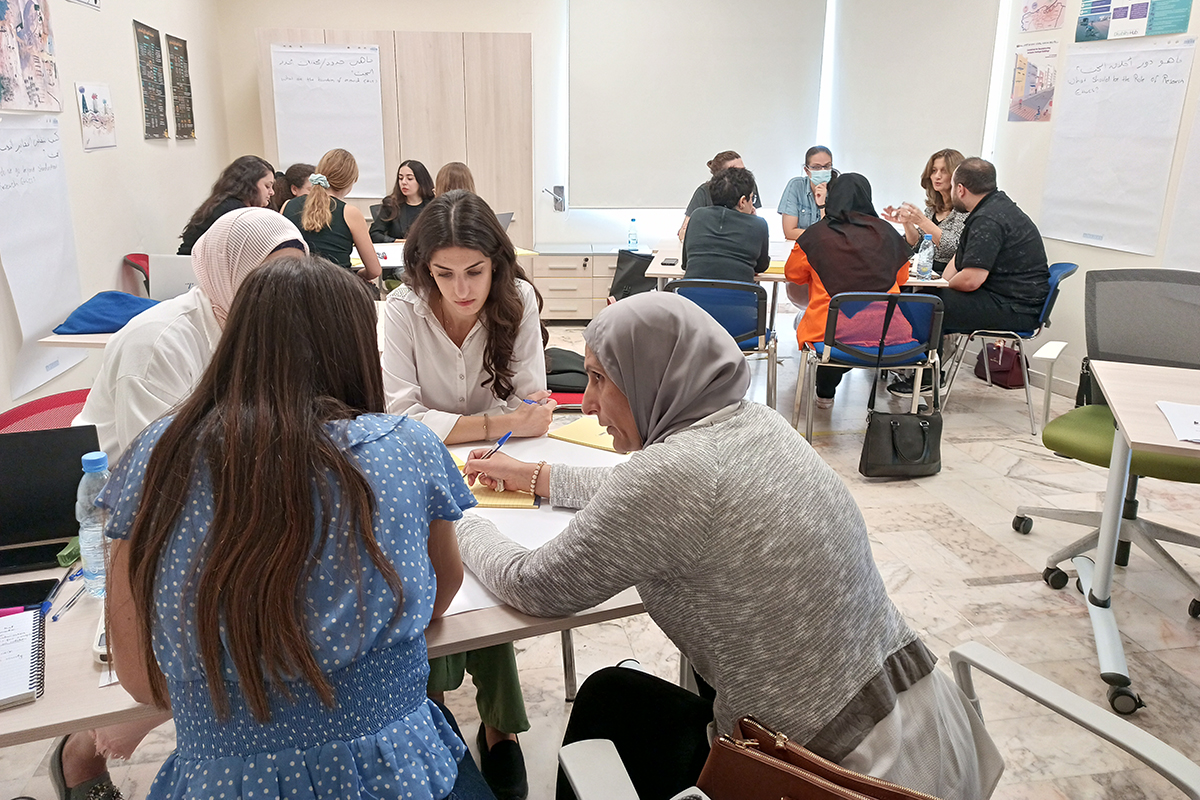Op-Ed: We Need to Talk About Research Ethics and Positionality
Dr. Mai Abu Moghli and Dr. Jasmin Lilian Diab write about a series of workshops by the Centre for Lebanese Studies at LAU to help advance the discourse on decolonizing research structures and practices.
Between October and November 2022, the Centre for Lebanese Studies (CLS) at LAU organized three one-day workshops in Beirut, Cambridge and Amman. The workshops are part of creating a space facilitated by the CLS in Beirut and Cambridge under the British Academy Bilateral Chair Program, where researchers, scholars, and practitioners can scrutinize topics related to research such as theorizing, political reflexivity, dynamics of knowledge production, use of language, terminology and much more.
Titled Unpacking the Industry of Refugee Education and Research: Towards Equitable Theory and Practice, the program ties in with the CLS’ commitment to further the discussion about decolonizing research structures and practices, as well as contribute to this collective effort.
The three workshops on critical and decolonial research ethics tackled the unethical research taking place in this region and its harmful impact on individuals and communities, including researchers and research institutions from the Global South who are involved in partnerships with institutions from the Global North amid imbalanced power dynamics and exploitative research practices.
They provided a space for scholars, researchers and practitioners who work on research projects focused on emergency and conflict contexts in the wider social sciences and humanities, to assist them in “unlearning” standardized and rigid framing of research ethics that amount to “ticking boxes” through institutional forms, and critically engage in a collective discussion around what ethics mean in the challenging contexts we work and live in.
Along these lines, the workshops explored how researchers can move their work from being led and driven by agendas that are detached from the context they research to being more ethically aware and sensitively framed to ensure knowledge production is relevant and context-specific.
The discussions focused on the positionality of the researchers, institutions and funding, and how this translates into practice. Participants in all three locations – Beirut, Cambridge and Amman – spoke about their relation to their research, the potential for subjectivity, and how they might inadvertently be causing harm through their work. Furthermore, they explored how their personal values may intersect with research ethics beyond institutional ethical standards.
Four main issues came up in all sessions, reflecting a need to unlearn the institutionalized, rigid conceptualization of research ethics and allowing for a more humanist and humanizing understanding and implementation of ethics throughout the research cycle:
1. Critically engaging with research ethics remains a priority for junior researchers and students who are participating in research spaces for the first time, whereas senior researchers and established academics find themselves disconnected from this engagement as they become more distant from the work and contexts they are delving into.
2. Thinking of research ethics beyond the institutional standards makes the implementation of research ethics confusing and problematic – and ultimately, may lead to questions surrounding the feasibility of the study and its scope.
3. Research ethics are clearly highlighted during the data generation phase, while they are not considered in other stages, such as inception, design, analysis and dissemination at a later stage. Data is often not taken back to the context and shared with research participants.
4. Donor priorities impact the direction of the research, its scope, and the extent to which it caters to ethical sensitivities and contextual realities.
In all three workshops, participants underscored the need for ongoing discourse in response to the change of context, topic, and the people they work with. They recommended having networks of support where researchers can meet regularly to share experiences and discuss the ethical issues they face in their work.
In addition, there remains a need for spaces that address how to deal with these ethical dilemmas beyond the confines of the institutional standards that in many cases may be detached and unable to cater to emerging realities.
As part of the British Academy Bilateral Chair Program titled Unpacking the Industry of Refugee Education and Research: Towards Equitable Theory and Practice, the CLS is calling for applications for two-year research fellowships and a PhD retreat in Beirut.
More information about upcoming activities can be found here.
